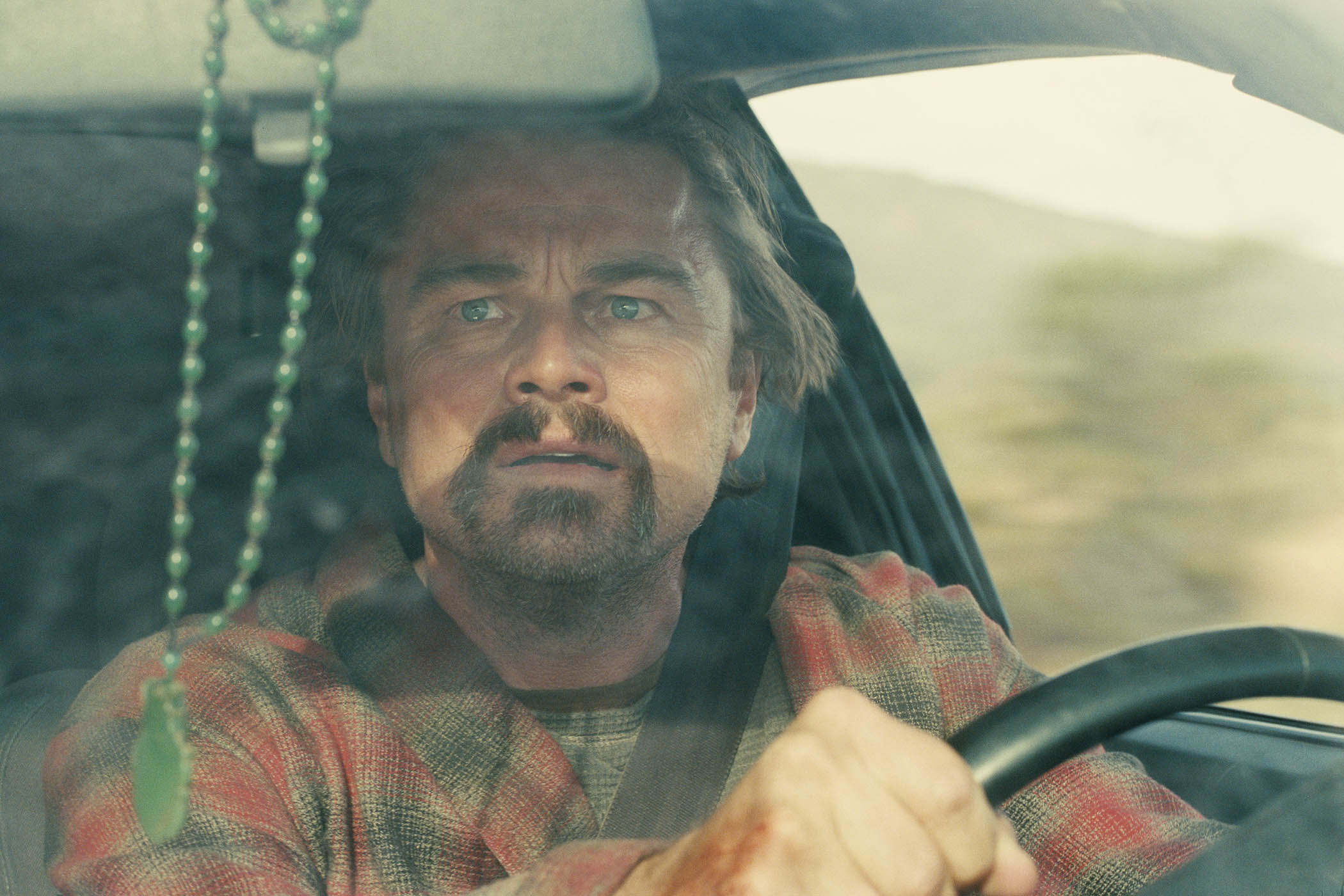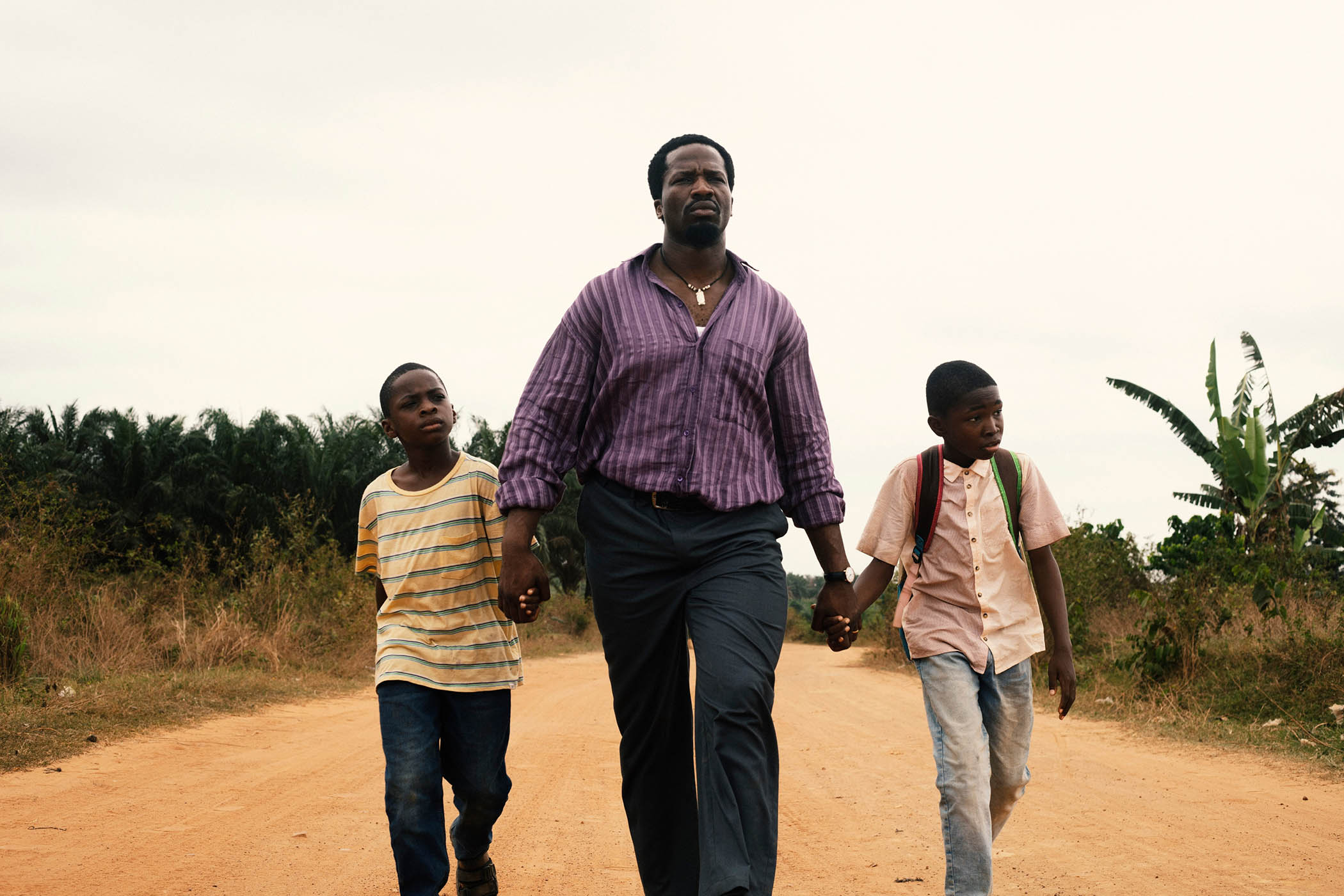The latest picture from Paul Thomas Anderson – the ambitious, audacious American epic One Battle After Another – is not the kind of movie you can neatly categorise. This uninhibited, wild ride of a film is a troublesome, contradictory creature that operates on multiple levels. It’s simultaneously a loose-limbed and sprawling stoner flick and an urgently propulsive action thriller. It’s an absurdist comic caper, but at the same time, it’s a clear-eyed and ferociously angry political satire. It feels as acutely of the moment as it’s possible for a mainstream Hollywood picture to be, and yet there are elements that seem discordantly tone-deaf and dated.
But contradictions are an essential part of film-making as risk-taking and distinctive as this. Anderson, at his best, represents a cinema of big swings and bold statements. Perhaps not everything lands, but there’s enough that does to make this glorious mess of a movie one of the most thrilling cinema events of the year.
One Battle After Another is an extremely loose adaptation of Thomas Pynchon’s Vineland (following 2014’s Inherent Vice, this is PTA’s second Pynchon-inspired work). It is divided into two distinct time periods: the first flings us on to the frontline of countercultural open warfare. An underground revolutionary organisation known as the French 75 embarks on a series of vigilante sprees, busting into detainment centres to free incarcerated, wire-caged refugees then staging bank heists to fund their not inconsiderable firearms and explosives expenses.
It’s an egalitarian organisation, obviously, but the closest that there is to a ringleader calls herself Perfidia Beverly Hills (Teyana Taylor). Clad in a crop top and combat trousers, and brandishing a machine gun, she’s a formidable force in whatever she does, be it fighting or fucking (these seem to be her preferred activities, sometimes performed simultaneously). Committed relationships are a little too bourgeois for Perfidia, but for a while at least she hooks up with fellow revolutionary Bob AKA Ghetto Pat (Leonardo DiCaprio). They stay together long enough to bring a child into the world, before Perfidia walks out, announcing: “I put myself first and I reject your lack of originality.”
DiCaprio, as a zonked, out-of-his-depth dad trying to do right by his daughter, navigates this tonal minefield admirably
DiCaprio, as a zonked, out-of-his-depth dad trying to do right by his daughter, navigates this tonal minefield admirably
The meat of the story takes place around a decade and a half later. Perfidia’s baby is now a self-confident and spirited 16-year-old girl named Willa (Chase Infiniti); she lives with the now perma-stoned and burnt-out Bob in the fly-blown desert town of Baktan Cross. Excessive weed intake has blunted his edges, miring him in paranoia. There is good reason for the latter, it turns out: military man Colonel Steven J Lockjaw (Sean Penn) has made it his life’s mission to hunt down the former radical father and his daughter, motivated by more than a personal grudge. Benicio Del Toro’s martial arts mentor Sensei Sergio St Carlos and an order of black marijuana-farming nuns add to the frenzied, antic energy, as does a rattling percussive score by Radiohead’s Jonny Greenwood; plus there’s a secretive, powerful racist organisation known as the Christmas Adventurers (who are dreaming of a white Christmas).
Anderson’s approach to storytelling has echoes of Stanley Kubrick’s Dr Strangelove, and what Ari Aster attempted in Eddington. It’s a film that harnesses overblown absurdist humour to critique serious themes (in this case, a polarised America tearing itself apart from the inside). It’s a tricky balance, particularly when it comes to character nuance and performances. DiCaprio, as a zonked, out-of-his-depth dad trying to do right by his daughter, navigates a tonal minefield admirably. Bob is something of a Coen brothers-esque creation – his relaxed costumes evoke Jeff Bridges in The Big Lebowski; his state of baffled agitation has shades of Nicolas Cage in Raising Arizona. It’s a physically committed and terrifically funny turn from DiCaprio. Penn’s performance as Lockjaw, however, teeters on the edge of being grotesquely cartoonish: all twanging neck sinews and grinding teeth, it’s as though Popeye retired from the navy and rebranded himself as an ultranationalist fanatic.
Perfidia, though, sits most uncomfortably in the film. It’s not Taylor’s performance that’s the problem: she’s an electrifying presence, and her energy drives the first chapter of the story. But the way she’s written – as a kind of fetishised, sexually aggressive Amazonian warrior driven by the twin engines of rage and libido – makes her seem, at times, more like a series of inciting events than a fully rounded character.
Does it matter in the long term? Perhaps not. Perfidia’s role in the story is as much about her absence as her presence. The hole she leaves in the lives she has touched has grown, over time, to accommodate her extravagant, shapeshifting mythology.
Related articles:
Photograph by Warner Bros Pictures
Newsletters
Choose the newsletters you want to receive
View more
For information about how The Observer protects your data, read our Privacy Policy



